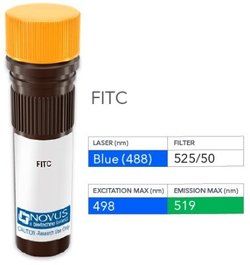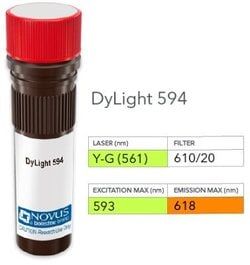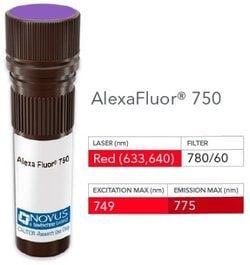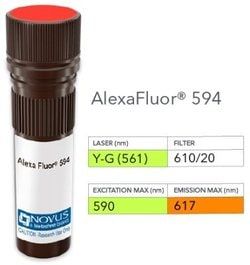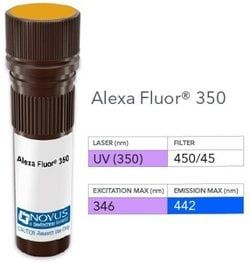Insulin Antibody (E2-E3 + 2D11-H5 (same as INS04 + INS05)), FITC, Novus Biologicals™
Manufacturer: Novus Biologicals
Select a Size
| Pack Size | SKU | Availability | Price |
|---|---|---|---|
| Each of 1 | NB006234-Each-of-1 | In Stock | ₹ 58,562.00 |
NB006234 - Each of 1
In Stock
Quantity
1
Base Price: ₹ 58,562.00
GST (18%): ₹ 10,541.16
Total Price: ₹ 69,103.16
Antigen
Insulin
Classification
Monoclonal
Conjugate
FITC
Formulation
PBS with 0.05% Sodium Azide
Gene Symbols
INS
Immunogen
Purified pig insulin, conjugated to KLH (E2-E3 & 2D11-H5) (Uniprot: P01308)
Quantity
0.1 mL
Research Discipline
Diabetes Research, Immune System Diseases, Immunology, Lipid and Metabolism, Stem Cell Markers
Test Specificity
Recognizes a polypeptide which is identified as insulin, a 51-amino acid polypeptide composed of A and B chains connected through the C-peptide. Proinsulin, which has very little biological activity, is cleaved by proteases within its cell of origin into the insulin molecule and the C-terminal basic residue. Insulin enhances membrane transport of glucose, amino acids, and certain ions. It also promotes glycogen storage, formation of triglycerides, and synthesis of proteins and nucleic acids. Deficiency of insulin results in diabetes mellitus. The main storage site for insulin is the pancreatic islets. Antibodies to insulin are important as beta-cell and insulinoma marker.
Content And Storage
Store at 4°C in the dark.
Applications
Flow Cytometry, Immunohistochemistry, Immunocytochemistry, Immunofluorescence, Immunohistochemistry (Paraffin)
Clone
E2-E3 + 2D11-H5 (same as INS04 + INS05)
Dilution
Flow Cytometry, Immunohistochemistry, Immunocytochemistry/Immunofluorescence, Immunohistochemistry-Paraffin, Immunohistochemistry-Frozen
Gene Alias
IDDM2, ILPR, insulin, IRDN, MODY10, proinsulin
Host Species
Mouse
Purification Method
Protein G purified
Regulatory Status
RUO
Primary or Secondary
Primary
Target Species
Human, Mouse, Porcine, Bovine, Rabbit
Isotype
IgG1 κ
Related Products
Description
- Insulin Monoclonal specifically detects Insulin in Human, Mouse, Porcine, Bovine, Rabbit samples
- It is validated for Immunohistochemistry, Immunohistochemistry-Paraffin.
